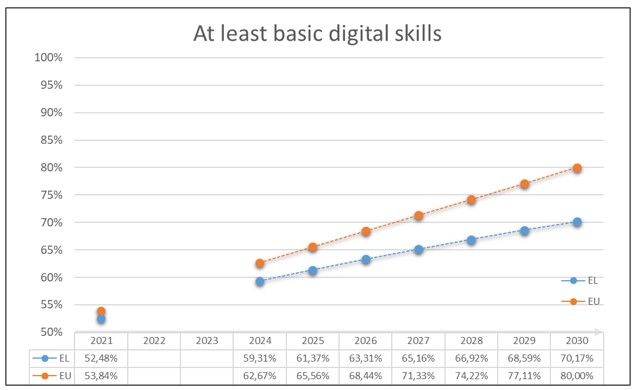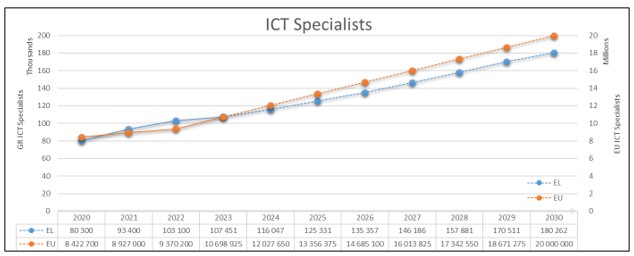Home / Strategic Intervention Axes /
The current measures, policies, and actions being implemented and planned aim at effectively addressing the digital skills gap in the population, improving the digital skills of the workforce, and creating a direct link between qualifications and job positions. To this end, both the reforms of DYPA (formerly OAED), "Specialization, retraining, and upgrading of the workforce through a reformed training model for the active population" and "Enhancement of the apprenticeship system," as well as the reforms and investments of the Ministry of Education, create opportunities for more effective responses to the retraining and upgrading of workforce skills. In this direction, the Horizontal Upskilling Programs will further support and strengthen policies for addressing skill mismatches. Specifically, the reform "A New Strategy for Lifelong Learning: Modernization and Upgrading of the Greek System of Upskilling and Retraining" will serve as a cornerstone for the effective implementation of upskilling and retraining programs.
 More Information
More Information
There is a digital skills deficit in the population, particularly among the elderly and people with a low economic and educational profile, and a general low ranking in human capital.
Significant population decline with a tendency to become the fastest ageing country in the EU by 2030.
Quite a small number of employed ICT specialists, which is significantly below the EU average.
Large inflow of highly skilled people (brain drain) over the last decade.
Goal 1
At least basic digital skills: 70% of people aged 16-74 have at least basic digital skills
70% of people aged 16-74 have at least basic digital skills

Forecast until 2030
Enhance the National Portal of Digital Skills for citizens (National Academy for digital Competencies)
Training the population in the following digital skills such as
Goal 2
ICT specialists - 180,000 people aged 15-74 employed as ICT specialists
180,000 people aged 15-74 to be employed as ICT specialists

Forecast until 2030
Primary and secondary education constitute a critical stage in motivating children towards obtaining an ICT degree
Increase of graduation rates in ICT students means more ICT professionals than expected
More ICT Graduates (SAEK and Private Colleges)
Re-skilling of non-ICT graduates in acquiring digital competences increases the number of ICT professionals